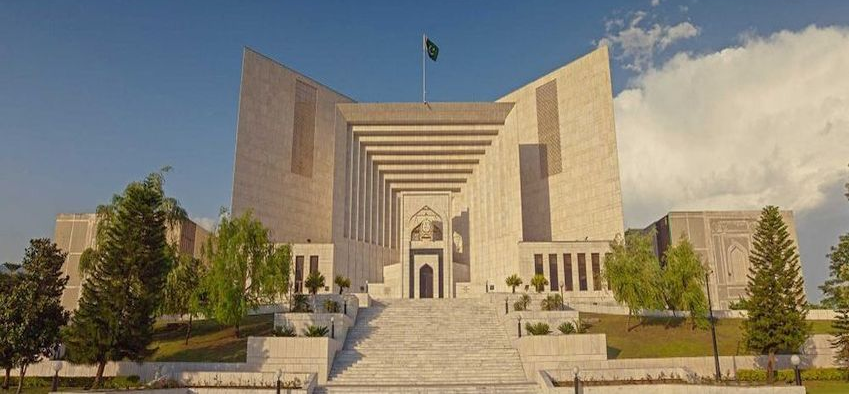The Political Party must win General Seats to Qualify for Reserved Seats --- Supreme Court of Pakistan
Islamabad 11-10-2024: The Supreme Court of Pakistan, in a significant ruling, dismissed the appeals filed by Sunni Ittehad Council (SIC) and Pakistan Tehreek-e-Insaf (PTI), upholding the Election Commission of Pakistan’s (ECP) allocation of reserved seats in the National and Provincial Assemblies following the 2023 general elections.
A full bench of the Supreme Court of Pakistan, led by Mr. Chief Justice Qazi Faez Isa, delivered a detailed judgment on the legality and constitutionality of ECP’s decision to allocate reserved seats to political parties that had contested and won general seats, rather than to those merely registered with the ECP.
The case centered around the allocation of reserved seats for women and non-Muslims in the assemblies. SIC and PTI had challenged the ECP’s decision, contending that their candidates were unfairly excluded from the allocation of these seats, despite a significant vote share.
The Court interpreted Articles 51 and 106 of the Constitution, clarifying that the allocation of reserved seats is based on the proportion of general seats won by a political party. A political party must have contested and secured general seats to be eligible for reserved seats. SIC, which did not win any general seats, was not entitled to reserved seats, regardless of its registered status with the ECP.
The judgment also addressed whether a political party’s disqualification from using its election symbol under Section 215 of the Election Act, 2017, impacts its other constitutional rights. The Court ruled that disqualification from using an election symbol does not infringe upon a party’s other constitutional rights, and its candidates may still contest as independent candidates.
The Supreme Court of Pakistan reaffirmed that Articles 17 and 19 of the Constitution protect the right to form political parties and participate in elections. However, these rights do not guarantee representation if the party fails to secure sufficient seats in the general elections.
The judgment emphasized that the doctrine of proportional representation must reflect the electoral performance of the political parties. This ensures that reserved seats accurately represent the will of the electorate as expressed in the general seats.
The bench held that the ECP’s decision to allocate reserved seats only to those parties that had won general seats was in line with the Constitution and the Election Act, 2017. The Court dismissed SIC’s argument that it should be allocated reserved seats despite not winning any general seats.
The judgment also highlighted the role of the ECP as a neutral body responsible for ensuring transparency and fairness in the electoral process. The bench underscored that the allocation of seats must follow the procedures outlined in the Constitution and electoral laws, which prioritize the results of general seats.
This decision has set a precedent for the future interpretation of electoral laws, particularly concerning the allocation of reserved seats. It has reaffirmed the ECP’s role in managing the electoral process and ensuring that representation in the assemblies reflects the true mandate of the people.
With this ruling, the Court has closed the door on claims by political parties seeking reserved seats without a corresponding performance in the general elections. The judgment serves as a reminder that constitutional rights and privileges related to political participation are intertwined with a party’s performance in the electoral process.
The Supreme Court of Pakistan judgment has reaffirmed the principles of proportional representation and electoral fairness, reinforcing the authority of the ECP in ensuring compliance with electoral laws. The decision is expected to have far-reaching implications for political parties contesting future elections in Pakistan.
The ruling, delivered on July 12, 2024, provides clarity on the interpretation of electoral laws and is being hailed as a landmark judgment in Pakistan’s legal and political history.
Powered by Froala Editor








